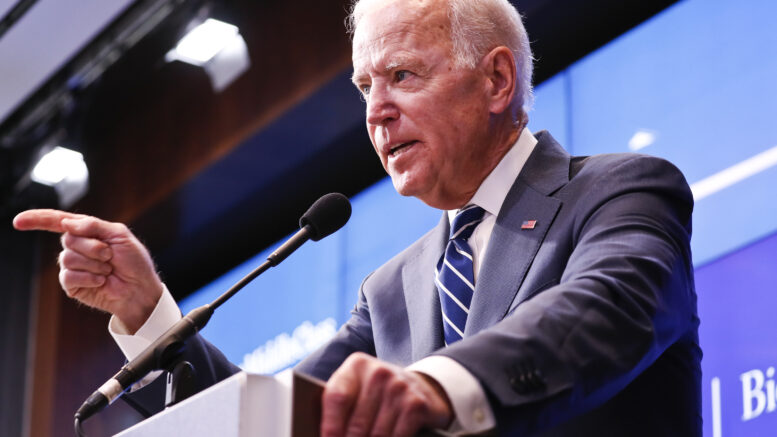President Joe Biden is looking to back up his tough rhetoric on China through new agreements with the European Union and changes to tariff policy.
The U.S. and EU announced it will put a five-year halt on tariffs imposed on Airbus and Boeing commercial airplanes, the latest move by the Biden administration to compete with China.
The hiatus will go into effect on July 11, after a previous four-month halt expires, and will still allow flexibly for the U.S. to reimplement tariffs if it so chooses. The Airbus-Boeing dispute between the U.S. and EU has been ongoing since 2004 but may now finally be coming to an end.
“The U.S. and EU will work together in specific ways that reflect our high standards, including collaborating on inward and outbound investment and technology transfer,” Biden said. “It’s a model we can build on for other challenges posed by China’s economic model.”
The dispute stemmed from tariffs and tax breaks given to and imposed against French airplane manufacturer Airbus and American airplane manufacturer Boeing by the EU and U.S. in recent years. The dispute reached a peak in 2019 when the U.S. imposed steep tariffs on Airbus after it was found by the World Trade Organization that the EU had unfairly given the French manufacturer subsidies.
The dispute between the U.S. and EU also reached into the steel industry with its own set of tariffs by both sides, which both parties agreed to suspend last month. The goal of these deals are to lower prices of products such as steel or, in this case, airplanes in order to compete with intense competition from state-sponsored Chinese companies.
The deal is in stark contrast to the Trump administration’s approach to trade disputes with Europe, as expressed by U.S. Trade Representative Ambassador Katherine Tai on a press call Tuesday.
“Instead of fighting with one of our closest allies, we are finally coming together against a common threat,” Tai said. “We agreed to work together to challenge and counter China’s non-market practices in this sector in specific ways that reflect our standards for fair competition.”
The softer approach to Europe contrasts the scrutiny former President Donald Trump gave when evaluating deals and agreements, like NATO, with the belief that many nations were taking advantage of American generosity.
Biden at his meetings with the G-7 and NATO agreed to many broad pacts and initiatives against China and their aggression, but this deal will likely be among the more significant agreements.
The removal of tariffs will please free market groups but other critics remain skeptical of Biden and the EU’s lack of substantial action against the Chinese.
House Minority Leader Kevin McCarthy, R-Calif., blasted Biden for weak action against China and other adversaries during an appearance on Fox News Channel on Tuesday.
“Biden is making our adversaries stronger,” McCarthy said. “Russia is stronger today under a Biden administration than he was under the past administration. China is stronger today.”
A test for Biden’s strength against China is mounting amid agreements for a global corporate tax rate at the G-7. China is looking for exemptions to the agreed upon 15% minimum corporate tax rate.
Domestically Biden has endorsed the U.S. Innovation and Competition Act, which passed through the Senate with bipartisan support and is currently being considered in the House. The bill would authorize $250 million in funds to compete against China through technology and innovation.
The agreement between the U.S. and EU is centered around helping prevent being undercut by China, but Tai made clear on her call with reporters the EU would not be able to undercut the U.S. with this deal.
“Should EU support cross a red line and U.S. producers are not able to compete fairly and on a level playing field, the United States retains the flexibility to reactivate the tariffs that are being suspended,” Tai said.
This article was originally posted on Biden changes tariffs, proposes spending to combat China

Be the first to comment on "Biden changes tariffs, proposes spending to combat China"